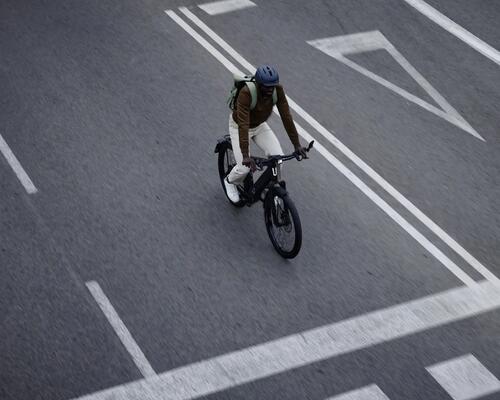Definitions: active travel and sustainable transport
For DECATHLON, active travel means: modes of transport that use non-assisted human physical exercise, with the exception of electric assistance.
For DECATHLON, sustainable transport means: modes of transport emitting up to 0.10 kg of CO2 per kilometre, such as electric buses and cars. Cars with a combustion engine and motorcycles are not included in the percentage of sustainable transport.




